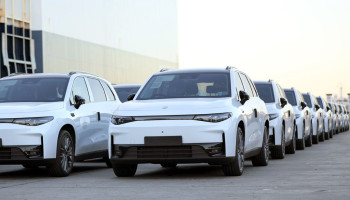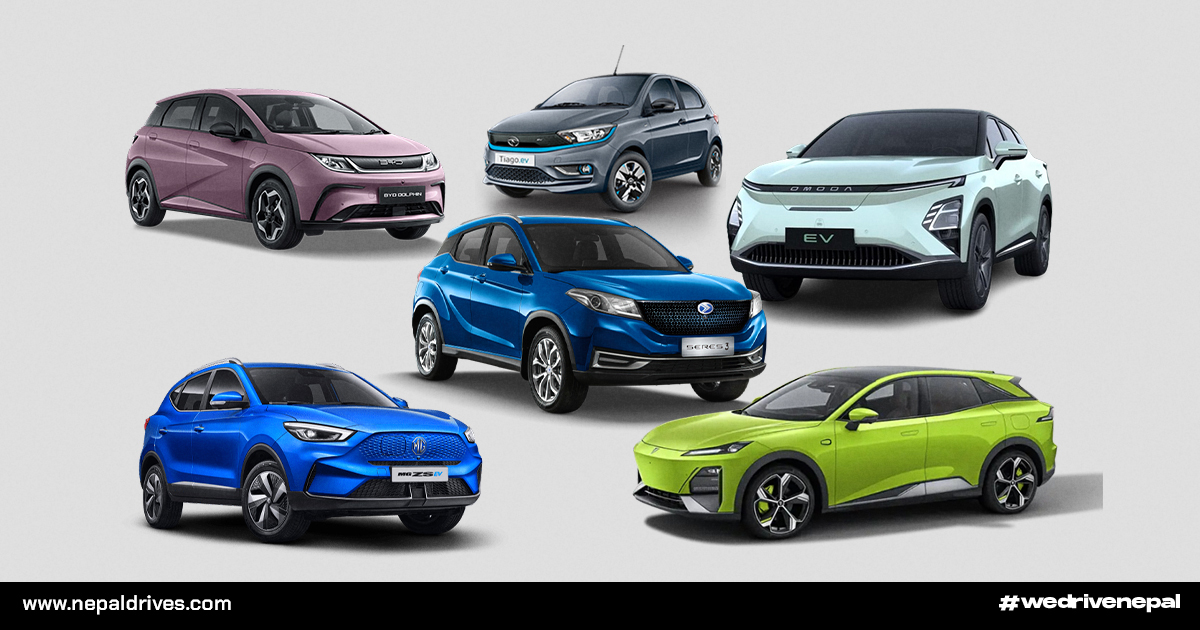According to data released by the Department of Customs (DoC), from mid-July 2023 to mid-June 2024 (Shrawan-Jestha) of the current fiscal year, the country has imported 11,466 units of electric cars, jeeps, and vans valued at over Rs 29 billion. Additionally, the government has generated approximately Rs 13.06 billion in revenue during this timeframe.
Until the month of Baisakh of the ongoing fiscal year, the country had imported 8,497 units of electric vehicles (EVs). Specifically in Baisakh, 1,404 units of EVs were imported. However, Jestha saw a notable increase, with 2,969 units of EVs imported, marking a rise of over 25% in comparison. Data from the Department of Customs indicates approximately 4,000 units of electric vehicles were imported during Baisakh and Jestha combined.During this period, the country imported 4,344 electric vehicles with a capacity of up to 50 kW and 6,885 EVs with a capacity ranging from 51 kW to 100 kW. Similarly, Nepal imported 209 four-wheeler EVs with a capacity of 101 kW to 200 kW, 27 EVs with a capacity ranging from 201 kW to 300 kW and 1 unit of EV above 300 kW.Notably, a significant portion of these electric vehicles were imported from China. As per the Department of Customs, China leads with 7,931 imported EVs in eleven months, followed by India with 3,277 units. Additionally, 150 units of EVs were imported from Indonesia, 82 from South Korea, 23 from Germany, and 3 from the United States.
Last month, the government raised taxes on electric vehicles as part of the budget for fiscal year 2081/82. Customs and excise duties will now vary according to the motor capacity of the vehicles, resulting in increased taxes across different categories.
For electric cars with a motor capacity of up to 50 kW, the customs duty has been increased from 10% to 15%. This category, which previously had no excise duty, will now face a 5% excise duty as well.
For electric cars with a motor capacity between 51 kW and 100 kW, both customs and excise duties have been raised by 5%. The customs duty has increased from 15% to 20%, and the excise duty has gone up from 10% to 15%.
For electric cars with a motor capacity between 101 kW and 200 kW, the customs duty has been raised from 20% to 30%, while the excise duty remains unchanged at 20%.
Similarly, for electric cars with a motor capacity between 201 kW and 300 kW, the customs duty has been increased by 20 percent, from 40% to 60%. However, the excise duty for this category has been reduced by 10 percent, from 45% to 35%.
For electric vehicles with a motor capacity above 301 kW, the customs duty has been increased from 60% to 80%, while the excise duty has been reduced from 60% to 50%.

Bajaj Introduces Exchange Program throughout Nepal













